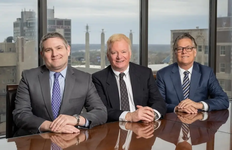Many pre-retirees (ages 55 to 62) in the US often hear that it is a wise decision to defer paying taxes on their retirement savings until after they retire. The rationale beyond this is that, after retirement, an individual’s income goes down, which means that their tax rate will go down and they can keep more of their savings. However, according to tax planning advisor George McReynolds, this is not always true, and many retirees can get hit by stealth taxes, affecting the funds they’ve stored up for their later years.
McReynolds, a Certified Financial Planner and Founder of Personal Tax Service, LLC, says that retirement taxation is a minefield, full of hidden taxation conditions that many people are unaware of. He adds that the often-repeated advice of deferring taxes came during the 1970s when tax laws and economic conditions were very different from today’s situation.
The primary reason he cites why deferring taxes is no longer a good decision is that most people are not going to be in a lower bracket post-retirement. With only 50% of the US population paying income taxes, they are not likely to get a lower rate. He says that tax brackets today are quite thick, so the chances of dropping to a lower bracket are very low, barring an extraordinary tragedy.
If an individual postpones the tax until they die, their heirs, who are probably in their peak earning years, are going to be saddled with having to pay the tax in a much higher bracket. McReynolds says that anything passed on to their heirs will be greatly depleted by having to pay a tax with the peak earning years.
Another reason that deferring taxes may not be the best decision is that tax rates are currently on a discount. When the Tax Cuts and Jobs Act expires in 2026, tax brackets are going back up and the standard deduction will be cut in half if Congress does nothing. With a $34 trillion national debt, there’s a lot of pressure to raise taxes if they want to spend more money. This means that pre-retirees, who will be retiring in less than 10 years, may be better off paying the taxes now instead of after 2026.
“If people wait too long until stealth taxes kick in, their margin for error really shrinks,” McReynolds says. “From a single time bomb, it becomes a huge minefield. If you step off the path too much, you're very likely to trigger one of these. The margin for managing these taxes can really restrict retirees' ability to plan their taxes.”
While there are multiple stealth taxes, the two largest are the income-related monthly adjustment amount (IRMAA), which is a surcharge added to the Part B and Part D Medicare premiums, and the tax on social security. If left unaddressed, a retiree could end up paying a 49.9% tax on certain withdrawals, despite being in the 25% bracket. With medical expenses growing at a much faster rate than general inflation, McReynolds predicts that the Medicare situation is going to become worse in the future.
The importance of doing the planning before the age of 63 is because the medicare IRMAA is determined by adjusted gross income (AGI) two years prior. The IRMAA surcharge is determined even if you are just $1 over the threshold.
In his work with pre-retirees and retirees, McReynolds takes a wide-angle view of taxes. Instead of lowering taxes just in the pre-retirement or early retirement years, he believes that the whole point of tax planning is to lower lifetime taxes. He believes that individuals should be less concerned with this year's taxes and much more concerned with how much tax they will need to pay for the rest of their life.
This is especially true for lifelong employees, such as doctors, nurses, and office workers. While business owners and self-employed individuals have more flexibility in managing their retirement tax situation, W-2 earners are much more limited in their options, and they can greatly benefit from the expertise of a professional, such as McReynolds.
“For example, if a wage worker, whether they have a 401(k) or an IRA, can take the tax deduction now and get $100,” he says. “They can invest that $100 or put it into a Roth account where they don't get the tax break, so they only have $70 right. But, that $70 is tax-free forever and can be inherited tax-free. That also means they won't burden their heirs with any taxes. What I often tell clients is that, if I make them $10,000 in their IRA, they can't spend the full $10,000 because of taxes. But, if I save them $10,000 in taxes, they are free to use it all as they see fit.”
Media contact:
Name: George McReynolds
Email: [email protected]
There is no offer to sell, no solicitation of an offer to buy, and no recommendation of any security or any other product or service in this article. Moreover, nothing contained in this should be construed as a recommendation to buy, sell, or hold any investment or security, or to engage in any investment strategy or transaction. It is your responsibility to determine whether any investment, investment strategy, security, or related transaction is appropriate for you based on your investment objectives, financial circumstances, and risk tolerance. Consult your business advisor, attorney, or tax advisor regarding your specific business, legal, or tax situation.






